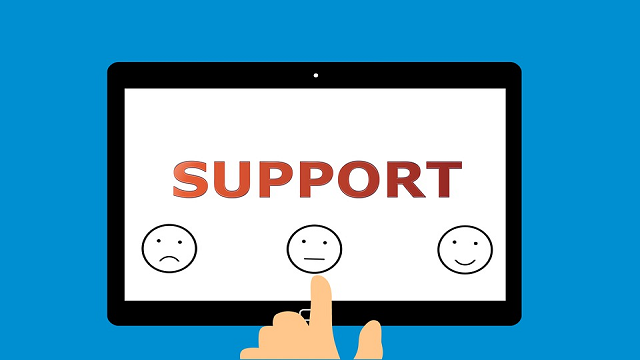QA For Call Center Tips: Important Ways to Handle Customer Complaint
Table of Contents
In today’s digital world, customers wield more power than ever. Question answers for Call center tips are the most important ways to handle customer complaint. It has become easy for customers to share their experience with their family, friends, and connections. Instant sharing and recommendations can help propel a business at zero cost. That’s why many service providers are very particular with their customer satisfaction surveys just like what they often call – NPS (net promoter score).
However, what happens if a business failed to provide its customer a positive experience? The obvious answer is, customers will complain.
A study found that around 13 percent of unsatisfied customers will share their negative experience with at least fifteen people. Additionally, only 1 out of the 26 unhappy customers will complain directly to a business management. The others who don’t complain will only stop working with that business.

The Flipside
Customer complaints highlight a problem with a business. And that’s a good thing. Whether there’s something wrong with a particular product that might have resulted in a personal injury, or employees did not follow a protocol, or there are issues with the internal process, hearing complaints from customers will help address such issues.
This is very common in the call center industry since their main product is providing customer service to other businesses clients. Thus, for the call center industry, it’s recommended to have qa for call center to ensure that the agents will follow the process and recommendations that lead to a positive customer experience.
The quality assurance team will identify the flaw in the service or process and find ways to recommend a solution based on their monitored best practices or from what works. They often do call monitoring which is considered as a core aspect in providing necessary coaching and recommendation to improve customer satisfaction.
Furthermore, research has shown that addressing customers’ complaints as quickly as possible can generate loyalty. A business will gain brand advocates and loyal patrons once it has resolved complaints. Eventually, handling a customer complaint and resolving their problems will become very profitable for companies.
Complaint Analysis
Businesses do complaint analysis to identify, track, and handle customer complaints. When customers voice their concerns with a particular product or service, that does not mean businesses should treat their grievances equally.
Business owners must first ask the following before taking any action:
- Did the incident happen before?
- Was the complaint recorded?
- How often does a similar complaint arise?
- Is there a pattern to the issue and how customers file their grievances?
- Did the same customer report the complaint previously?
Answering such questions will help a business take the necessary steps to prevent the same issues from happening again. Answering the questions will also address the concerns and avoid any escalation from arising. For example, customers who got injured because of a product would no longer hire an attorney once their concerns are settled.
How to Handle Complaints
Here are useful tips according to an expert call center qa analyst on how to handle customer complaints and transform them into a golden opportunity for any business.
Listen well and understand
It is always good to hear one’s customers. They complain for a reason, and it is vital to figure out why they are filing a complaint. While it is nice to respond to customers’ concerns as quickly as possible, research has also shown that clients prefer a quality response than a fast one.
That is why business owners must take the time to listen and fully understand what the problem is. And to maintain the quality of service from a support personnel, it is good to employ a knowledge base for customer service.
Apologize
Often, it is good to acknowledge a mistake and apologize for it. Often, customers who are complaining are only looking for an acknowledgment of their concern and an apology for it. However, not many businesses are willing to admit a mistake even when they have made one.
Companies should not underestimate the value of an apology and how much it matters to a customer. Another research has shown that unsatisfied customers are more than willing to forgive a company that apologizes than one that only offers compensation.
The same study found that around 45 percent of customers decided to withdraw their complaint after the company issued an apology, while only 23 percent of clients did the same in exchange for compensation.
With that, the proponents of the study concluded that hearing the words “I’m sorry” triggers an instinct to forgive. But a business that follows through with its promise to resolve a complaint does an even better job than one that only apologizes.
Come up with a solution
Customers with legitimate concerns need a resolution. That is why it is necessary for a business to provide their customer service team the authority to handle significant customer complaints. A company should avoid passing their clients to a series of people supposedly tasked to resolve their concerns.
Identifying, if an issue, is replicable. It is also important for a company to make the needed changes to avoid receiving a similar complaint.
Follow up with the customer
Companies must also ensure their clients were satisfied with the solution. Provide a follow-up email or survey to request for feedback on what they think about the handling of the issue.
In the US, about 70 percent of customers will forego any further deals with a company because they do not believe in the care that business has with its clients. Only a few companies follow up with their customers. Remember that following up is a sign that a company cares. Doing so will make customers feel their value to business.
Exceed expectations
After acknowledging the mistake, fixing the problem, and following up, a business can take it even higher by doing something that exceeds customers’ expectations. Owners can send a handwritten note to thank the customer or provide them with early access to a new promo. Do that even when the client is in Dallas, Texas while your company’s in New York.
Once a business has exceeded expectations, that will become the strongest message that the now loyal customers will carry.
Best call center tips – Create a checklist for customer complaints
Solving complaints is like a business version of putting out fires. No matter how excellent the product or service is, there will always be an individual who will not find it good enough.
To better address complaints in the future, a business must do a 5-step checklist. The list will help companies respond, resolve concerns, and keep their customers happy. Here is the checklist.
- Acknowledge complaint
- Inform customer of action taken
- Record customer complaint and categorize it
- Resolve complaint according to the policy of the company
- Follow up with customer to ensure their satisfaction
Handling complaints will be an ongoing process for business. There is available customer service software to help businesses monitor and track complaints that will assist a company run the process as smoothly and quickly as possible.
For recurring complaints, the top management should handle that to resolve them quickly. In everything else, remember that losing a customer means losing the business.
Be proactive in handling complaints
As mentioned earlier, not every customer will send their complaints directly to the business.
Social media is here to provide everyone a quick and easy platform for sharing feedback. Today, people can directly share on multiple channels, forums, sites, and social media platforms about what they think of something. That is why it is also essential for businesses to let their customer service team work with a social media management group.
Doing so will pave the way for a more proactive process of handling customer complaints.
The team will first have to find the complaints online. That is not an easy task, but there are a few ways to start it.
- Is there any negative comment on your post or site?
- Did someone mention your brand on Twitter?
- Is there any customer who posted a message on your Facebook page?
- Did anyone leave a bad review on your Business page on Google?
- Are comments on your YouTube videos and channel positive or negative?
- Did you find your brand on any complaint directories when searching in Google?
A business’ social media management group and customer service team should always monitor all digital platforms. Not responding to any customer complaint online will make readers assume that a company does not care. On the other hand, responding to such messages will help maintain a good business reputation. Seeing that a company cares enough by responding to complaints can move customers and generate their loyalty to the brand.
Takeaway
All customer complaints are essential to any business. Though not all complaints are equal and have the same effect on a brand, businesses must be able to handle each in a positive and professional manner.
There is no better way to gather direct feedback from customers than acknowledging their complaints. Doing so will also help a company improve its products and services. No matter the kind of complaint a business will receive, it is always the way of handling the complaint that will make a difference between losing a customer or keeping one.
The next time a business will receive a complaint, the owners must make sure they listen to their customers. Apologize when needed and find a solution as quickly as possible. They must also follow up on their clients to see if they were satisfied with the way their complaints were handled. And whenever possible, go the extra mile to exceed their expectations and turn them into your loyal brand ambassadors.



